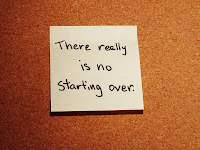Poker Miscellanies
Of course, here in the U.S. a lot of us have been in what might be called “resting up” mode for a long time now. Or perhaps more appropriately, “wait and see.” Looking forward to the second part of the year when some of the Nevada sites start going live (for real), and perhaps even something starts to happen in New Jersey, too, before the year is out.
The items coming over the news ticker this week are arriving a little more slowly than usual, although there were a couple of odds and ends that caught my eye over the last few days.
 That story out of Los Angeles about Joe Sebok, nude photos, email hacking, and an extortion attempt was kinda-sorta surprising to see. You probably heard about that one. Coupla dudes had already pleaded guilty to trying to extort Sebok and on Monday were back in a U.S. District Court to be sentenced for their crimes.
That story out of Los Angeles about Joe Sebok, nude photos, email hacking, and an extortion attempt was kinda-sorta surprising to see. You probably heard about that one. Coupla dudes had already pleaded guilty to trying to extort Sebok and on Monday were back in a U.S. District Court to be sentenced for their crimes.Sebok offered testimony to explain how the extortion attempt affected him, including negatively impacting his ability to work in poker. “I was no longer able to maintain my then-current level of participation in the poker industry, representing the brands that I had been previously, as well as greatly destroying my ability to do so with new companies moving forward,” Sebok told the judge.
The attempted scheme began in November 2010. Of course, by mid-April 2011 other factors arose quite suddenly also to negatively affect Sebok’s ability to represent the brands he had been previously. And by having associated with those brands, he had already more or less destroyed his ability to work with new companies in the poker industry moving forward.
There was another item from yesterday that I couldn’t help but click through to read about, a so-called “poker card murder” in China. At first I thought of that CSI episode from a couple of months ago, the poker-themed one I wrote about both here and over on PokerListings in which an actual playing card really is used as a murder weapon. I also thought of that “Killer Cards” story I’d read about not too long ago and shared here, the one involving a prisoner making a pipe bomb out of playing cards.
But reading this story, it appears the connection between poker and murder was entirely incidental. Rather the murderer had sealed up his victim in a carton box into which a few playing cards had accidentally fallen, thus igniting lots of misplaced speculation regarding the possible significance of the cards -- which, in fact, had nothing at all to do with the crime.
Even so, the story was kind of interesting insofar as it illustrated the deepy-rooted symbolic value of playing cards that transcends many cultures.
Finally, I’ll share one other, much lighter item, a National Public Radio segment in which actor, comedian, children’s book author, and hilarious Tweeter Michael Ian Black appeared with poker player Matt Matros on the show “Ask Me Another.”
The show is one of those live quiz shows performed in front of a live audience. Black and Matros were pitted against one another in a trivia game in which all of the questions were about poker. Black appeared multiple times on the old Celebrity Poker Showdown show, winning a couple of times, which I suppose partly explains how he ended up talking poker on the show.
As fans of both guys -- I wrote about Matros here once last summer -- I enjoyed the segment, which concluded with a Jonathan Coulton performance of Kenny Rogers’s “The Gambler.”
Labels: *the rumble, Joe Sebok, Matt Matros, Michael Ian Black, UltimateBet




















